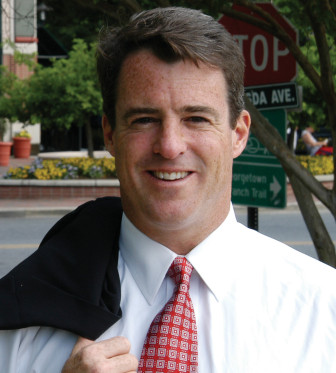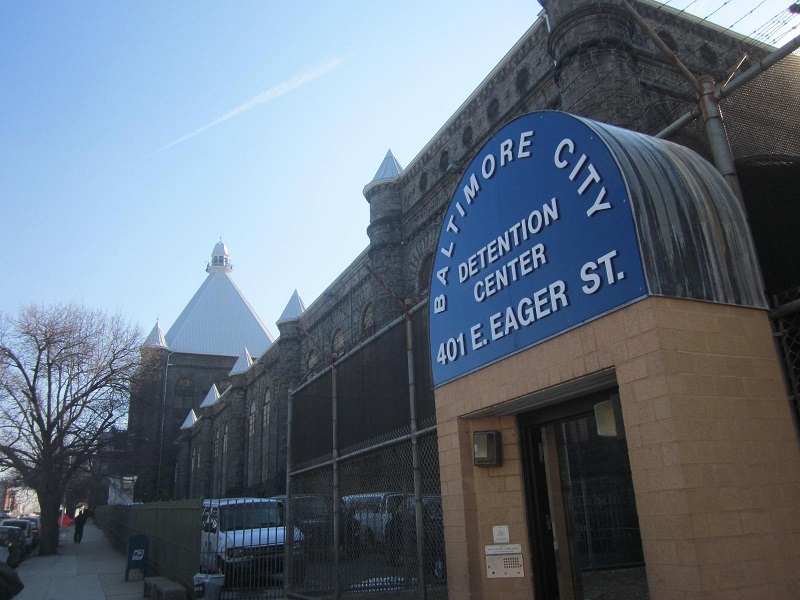@BryanRenbaum
bryan@marylandreporter.com
Former Maryland Attorney General Doug Gansler weighed-in on Friday on the battle between Gov. Larry Hogan and Democratic leaders in the General Assembly over legislation that would increase mandatory minimum sentences for those who commit gun crimes — saying such punishment is appropriate for repeat offenders.
“The only circumstance that makes sense and that would not be discriminatory and disproportionate to minorities and other circles would be for convicted felons — because if you have it for convicted felons, you could be a convicted felon if you’re purple, green, orange, black or white. A convicted felon is a convicted felon and if you’re committing a crime of violence with a gun then in that case the subjectivity is away — it objectively puts that person behind bars and removes them from the streets and would drastically reduce violent crime in our state,” Gansler told MarylandReporter.com in a phone interview.

Doug Gansler
Gansler, a Democrat who served from 2007-2015, said mandatory minimum sentences should be not applied to non-violent crimes, such as drug offenses. Gansler said he has not yet read Hogan’s legislation but he agrees with a provision relayed by MarylandReporter.com that would increase penalties for felons who possess a firearm.
“Mandatory minimums can be very dangerously applied and misapplied, but I don’t think they can be dangerously applied or misapplied when you’re talking about felons in possession of a firearm.”
The legislation is the Violent Firearms Offender Act of 2020. It would increase the maximum penalty for illegal possession of a gun from 5 years to 10 years. The penalty for the use of a firearm in the commission of a crime of violence or felony would be altered so that the “five-year mandatory minimum sentence for a first offense” is “nonsuspendable, nonparolable, and consecutive.” The penalty for the use of a machine gun in the commission of a crime of violence would change from a sentence of up to 20 years to a sentence of at least 5 years and up to 20 years. The legislation is one of four bills the administration has proposed to address the epidemic of violent crime in Baltimore City. Hogan has implored lawmakers to make that issue their foremost priority, and on Thursday — after re-designating the bills as emergency legislation — urged them at a news conference to pass the legislation immediately.
Hogan defended the Violent Firearms Offender Act at the news conference when a reporter asked if he had any data to support a correlation between increased sentences and reduced crime. Senate Judicial Proceedings Chairman Will Smith, D-Montgomery, has invited Hogan to come before the committee to make that case. Smith has said the committee will not approve the bill if mandatory minimum sentences are part of the package. Hogan said at the news conference that he believes he and Smith are making progress on some of the other crime bills.
“There’s no question that if you take the people that repeatedly shoot people off the streets, there’s gonna be less people getting shot in the streets. So, we have an issue where the average person has been arrested 11 times and convicted three times — and yet they’re still shooting people. It’s only common sense that if they’re behind bars then they won’t be shooting people.”
But Jacob Frenkel, a former federal prosecutor, said the prospect of mandatory minimum sentences are of little concern to violent criminals.
“Government officials, and in particular prosecutors, like to believe that increased sentencing and increased minimum sentences serve a meaningful deterrent purpose. When it comes to firearms, we delude ourselves into believing that longer sentences or minimum sentences serve a deterrent purpose.
“Most firearms offenses are committed by people who recognize readily the consequence is jail. There is no calculus around minimum mandatory sentences or lengths of sentence. The best way to view sentencing is entirely as punitive — not as deterrent.”
However, Frenkel said mandatory minimum sentences do have some effect on white-collar criminals because “more often than not” they “think about what it is they are doing and the consequence.”






“The only circumstance that makes sense and that would not be
discriminatory and disproportionate to minorities and other circles
would be for convicted felons — because if you have it for convicted
felons, you could be a convicted felon if you’re purple, green, orange,
black or white. A convicted felon is a convicted felon and if you’re
committing a crime of violence with a gun then in that case the
subjectivity is away — it objectively puts that person behind bars and
removes them from the streets and would drastically reduce violent crime
in our state,” perfectly explains the purpose and usefulness of mandatory minimum sentencing
How about mandatory minimums for scumbag former politicians like Dougie caught at underage drinking parties taking pictures of underage girls in bikinis?
Jacob Frenkel is quoted as saying minimum mandatory sentences does not impact the thinking of violent criminals and sentencing would only be punitive, not a deterrent. That is the exact point, we need to forget about deterring or rehabilitating at this point. The City is on fire and needs immediate help. If one violent repeat offender is sent to a long prison sentence, even if only punitive, doesn’t that mean the City is safer while he is away? Isn’t that what we’re looking for? A safer City, even if only for a few years? That will give more time to develop long term plans. Bottom line is who cares about the violent repeat offenders? Start caring more about the innocent people being harmed in the City.